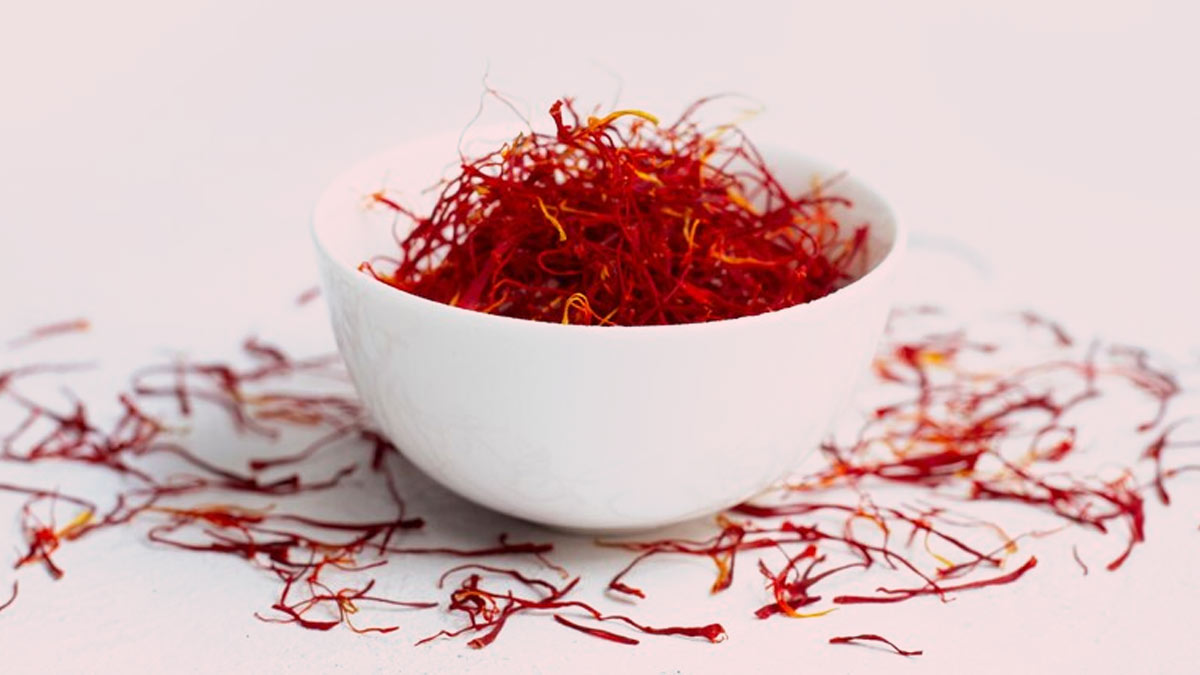
Pregnancy is a time filled with numerous well-meaning pieces of advice, from dietary recommendations to lifestyle changes. One of the most enduring myths is that consuming saffron (kesar) during pregnancy can ensure a fair-skinned baby. Despite its lack of scientific backing, this belief persists across many cultures. However, the true benefits of saffron during pregnancy extend far beyond skin colour. Renowned for its medicinal properties, saffron has been used for centuries to support overall health. This article explores the real reasons why saffron is recommended during pregnancy, shedding light on its genuine advantages and debunking the fairness myth.
Table of Content:-
To understand why saffron is advised during pregnancy and debunk the fairness myth, OnlyMyHealth interacted with Dr Madhu Juneja, Director – Department of Obstetrics & Gynecology, Cloudnine Group of Hospitals, Pune.
Saffron, a precious and ancient spice derived from the flower of Crocus sativus, is often recommended during pregnancy, but not for the widely believed myth that it will make the baby fair. According to Dr Juneja, this misconception likely stems from traditional and cultural beliefs rather than scientific evidence. “The real benefits of saffron during pregnancy are related to its medicinal properties, which contribute to the overall health and well-being of both the mother and the baby,” she said.
Health Benefits of Saffron During Pregnancy

Saffron may not make your baby fair but it has abundant benefits to give you during pregnancy. Here are some of the benefits listed by Dr Juneja.
1. Mood Enhancement and Stress Reduction
Saffron contains compounds like crocin, safranal, and picrocrocin, which according to studies, have mood-enhancing properties. Dr Madhu explained, “Pregnancy can be a time of significant emotional fluctuation and stress. Saffron can help alleviate anxiety and improve mood, contributing to the mental well-being of the expecting mother.”
Also read: Try These Tips to Prevent Stretch Marks on Your Abdomen During Pregnancy
2. Antioxidant Properties
Saffron is rich in antioxidants, which help protect cells from oxidative stress and damage. Dr Madhu said that this can be beneficial during pregnancy, as it aids in the overall health of the mother and supports the development of the baby.
3. Digestive Aid
Many pregnant women experience digestive issues such as nausea, bloating, and constipation. Dr Madhu said, “Saffron has been traditionally used to improve digestion and can help alleviate these common pregnancy-related problems. Its anti-inflammatory properties can also soothe the gastrointestinal tract.” Studies have shown that saffron strengthens the stomach, reduces appetite and gastric acidity and improves digestion.

4. Blood Pressure Regulation
Dr Mahu said, “Saffron contains potassium and crocetin, which can help lower blood pressure by relaxing blood vessels. High blood pressure during pregnancy can lead to complications such as preeclampsia, so maintaining healthy blood pressure levels is crucial.”
5. Sleep Improvement
Sleep disturbances are common during pregnancy due to hormonal changes and physical discomfort. “Saffron can promote better sleep by reducing anxiety and acting as a mild sedative,” Dr Madhu suggested.
Also read: Why You Shouldn’t Wear High Heels During Pregnancy
Safety Considerations

While saffron offers several health benefits, Dr Madhu said it is essential to use it cautiously during pregnancy:
Moderation is key: According to her, excessive consumption of saffron can lead to side effects such as uterine contractions, which might increase the risk of preterm labour. “Stick to the recommended amount (a few strands per day),” Dr Madhu advised.
Quality matters: Ensure you are using high-quality, pure saffron. Adulterated saffron can contain harmful substances.
Consult your doctor: Before adding saffron or any supplement to your diet, it’s always best to consult with your healthcare provider to ensure it’s safe for your specific health conditions.
Conclusion
Saffron’s recommendation during pregnancy is not based on the myth of influencing the baby’s complexion but on its genuine health benefits. It can help enhance mood, support digestion, regulate blood pressure, and improve sleep, contributing to the overall well-being of the mother and the baby. However, it is crucial to use saffron in moderation and under the guidance of a healthcare professional to avoid any potential risks.
Also watch this video
How we keep this article up to date:
We work with experts and keep a close eye on the latest in health and wellness. Whenever there is a new research or helpful information, we update our articles with accurate and useful advice.
Current Version